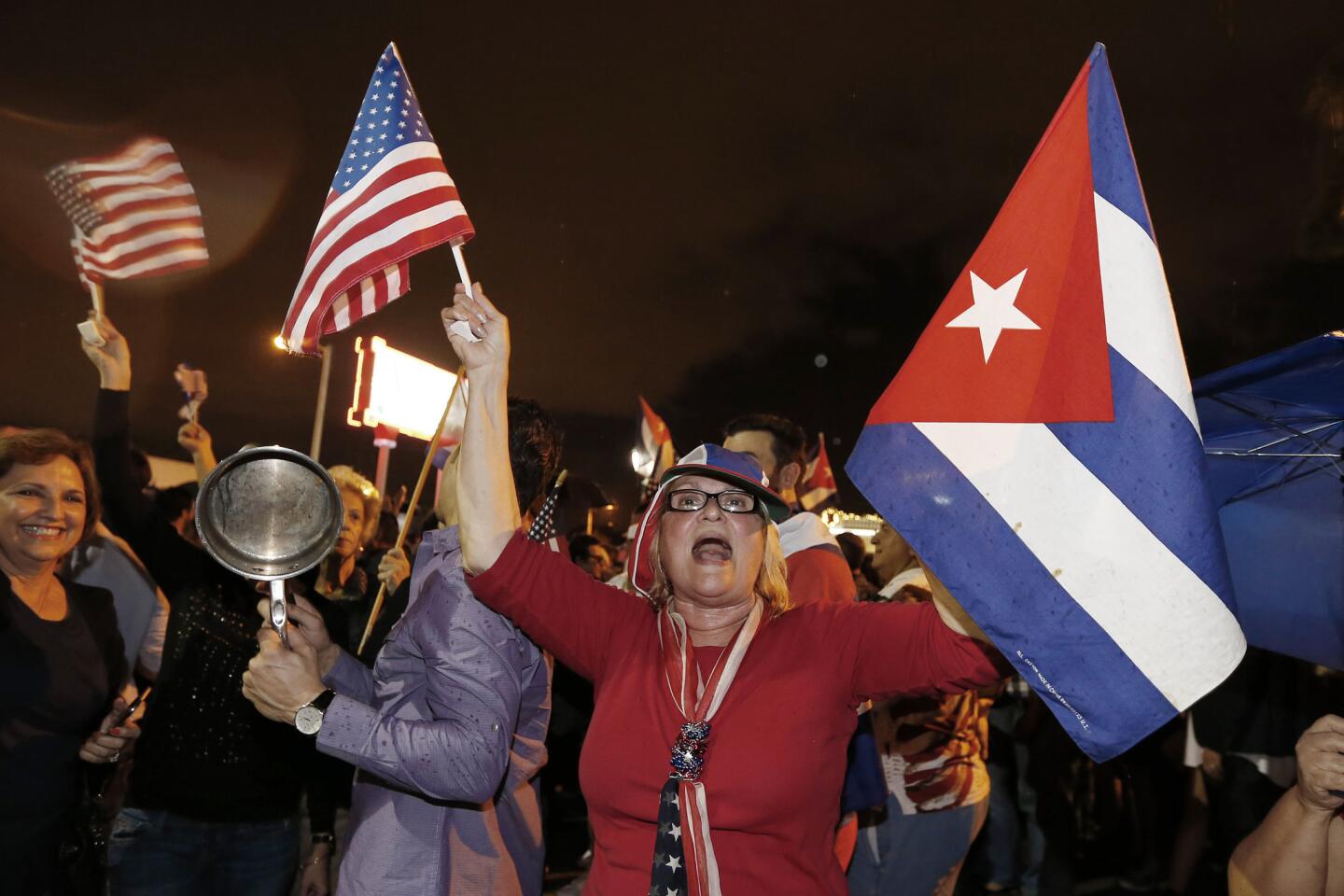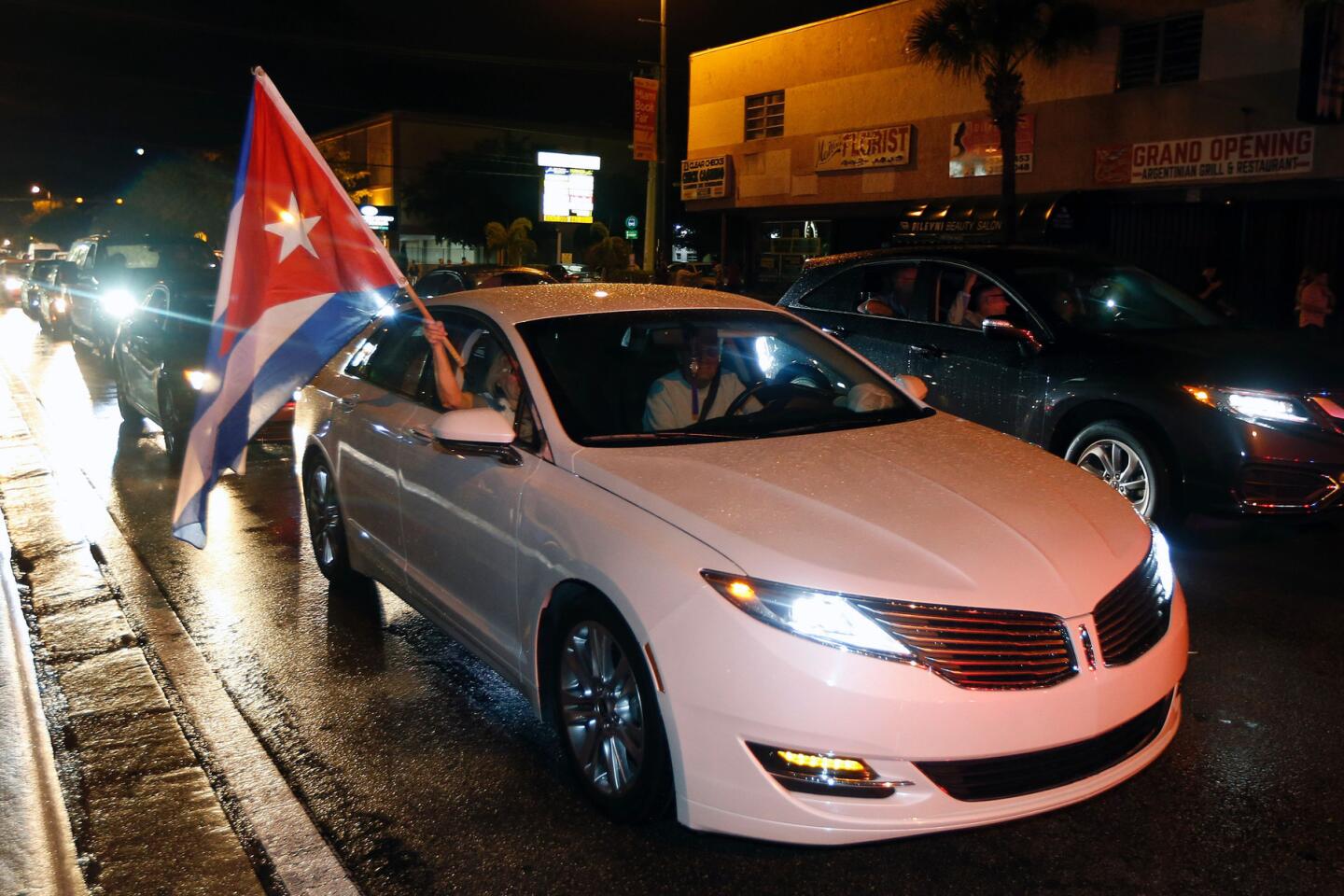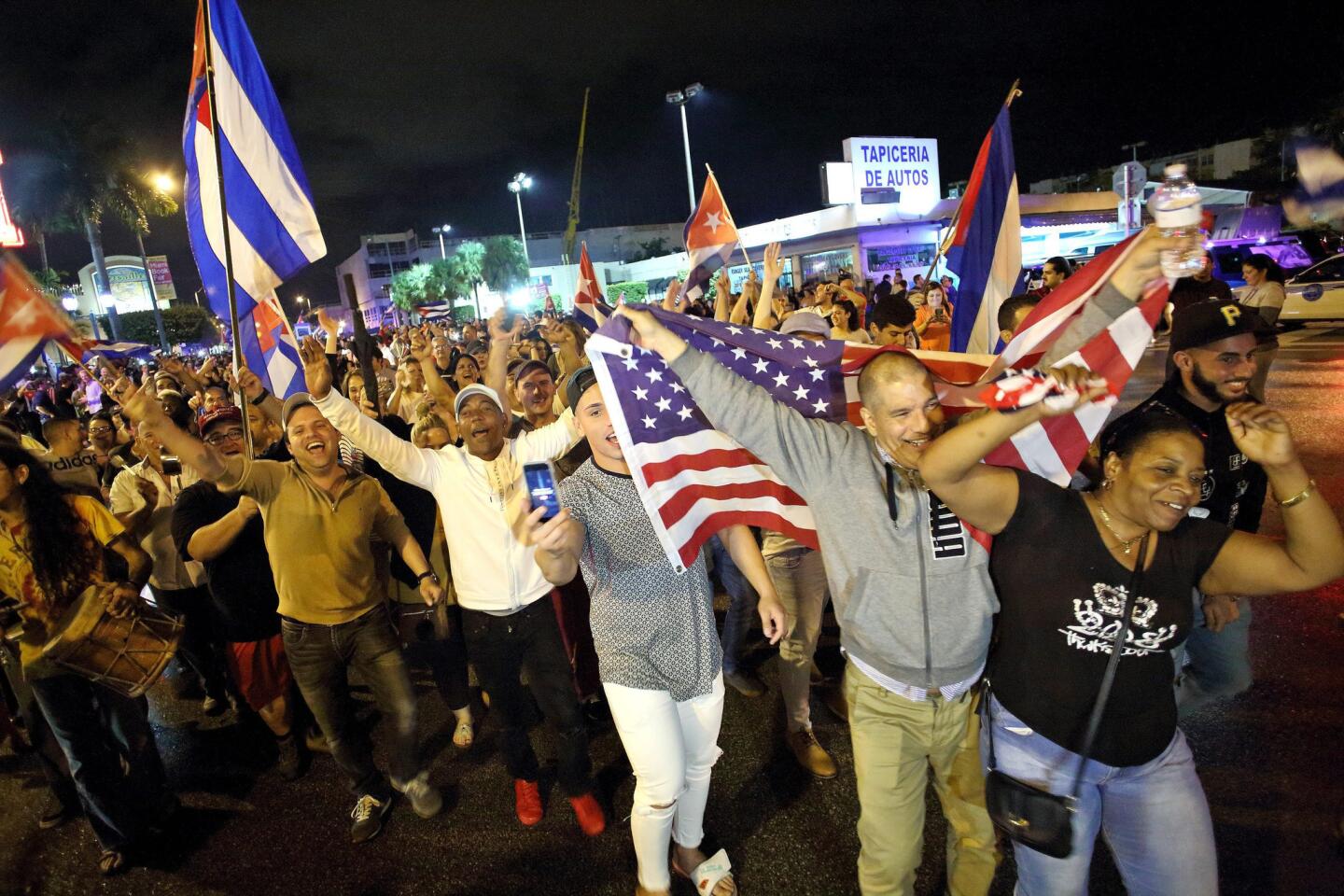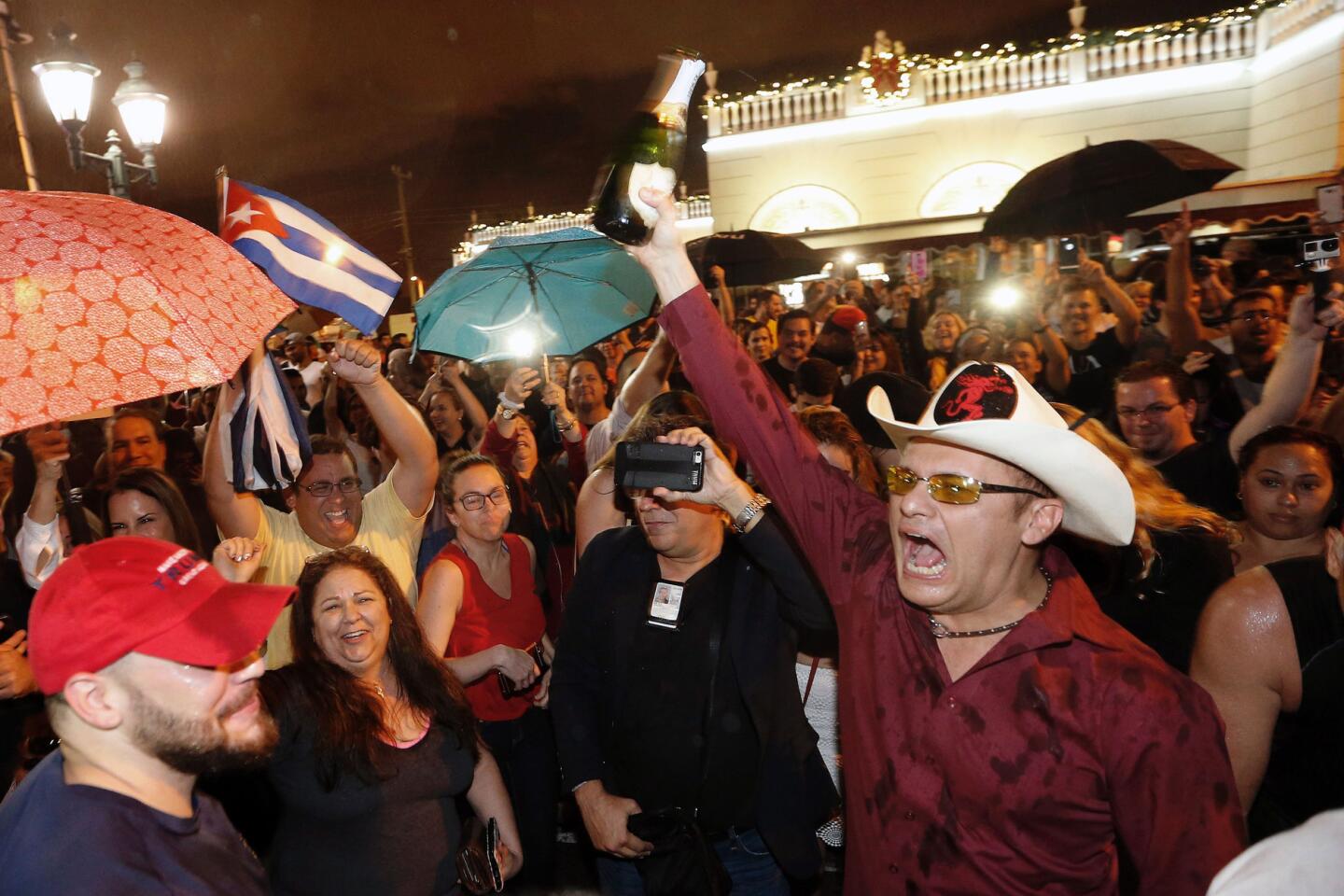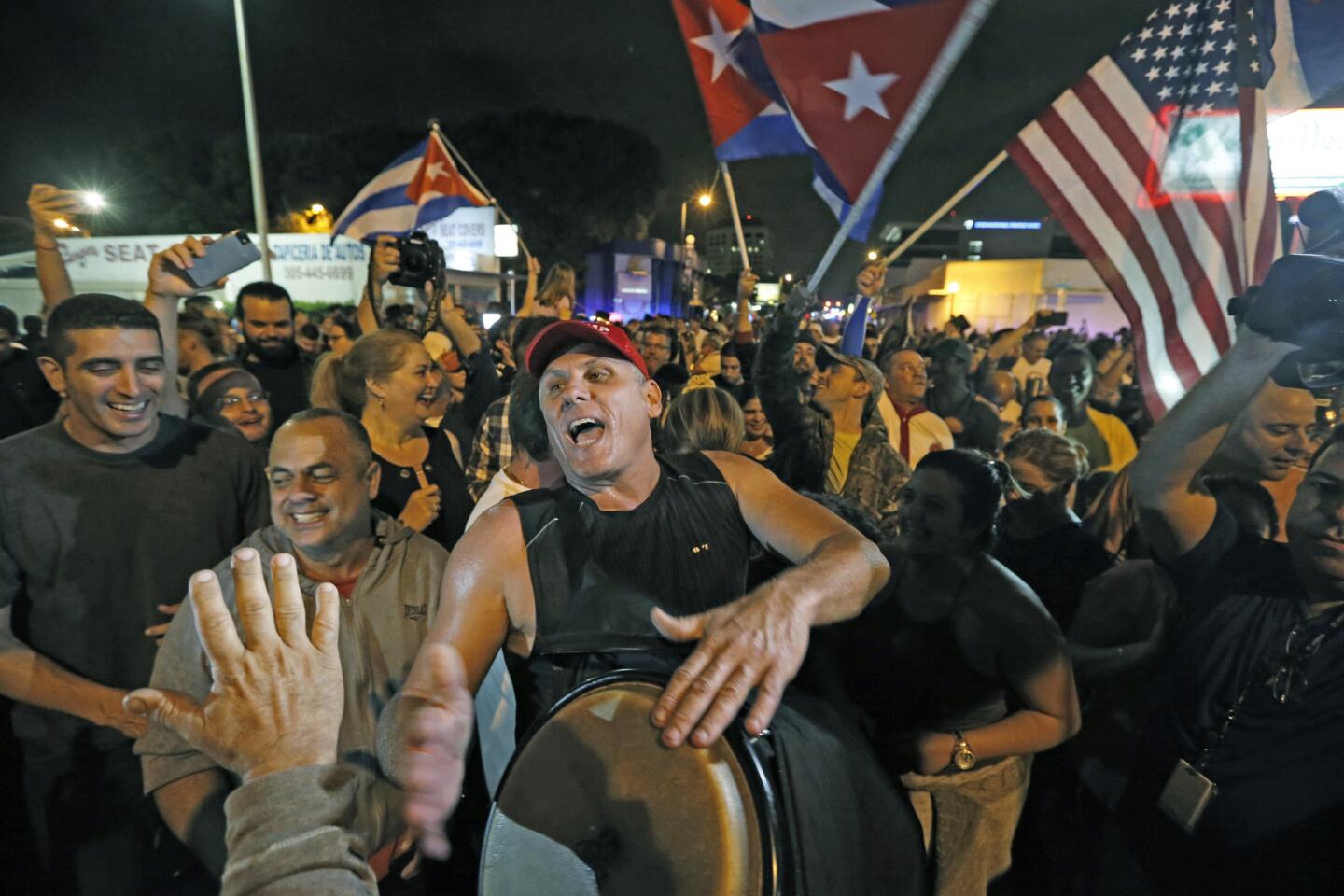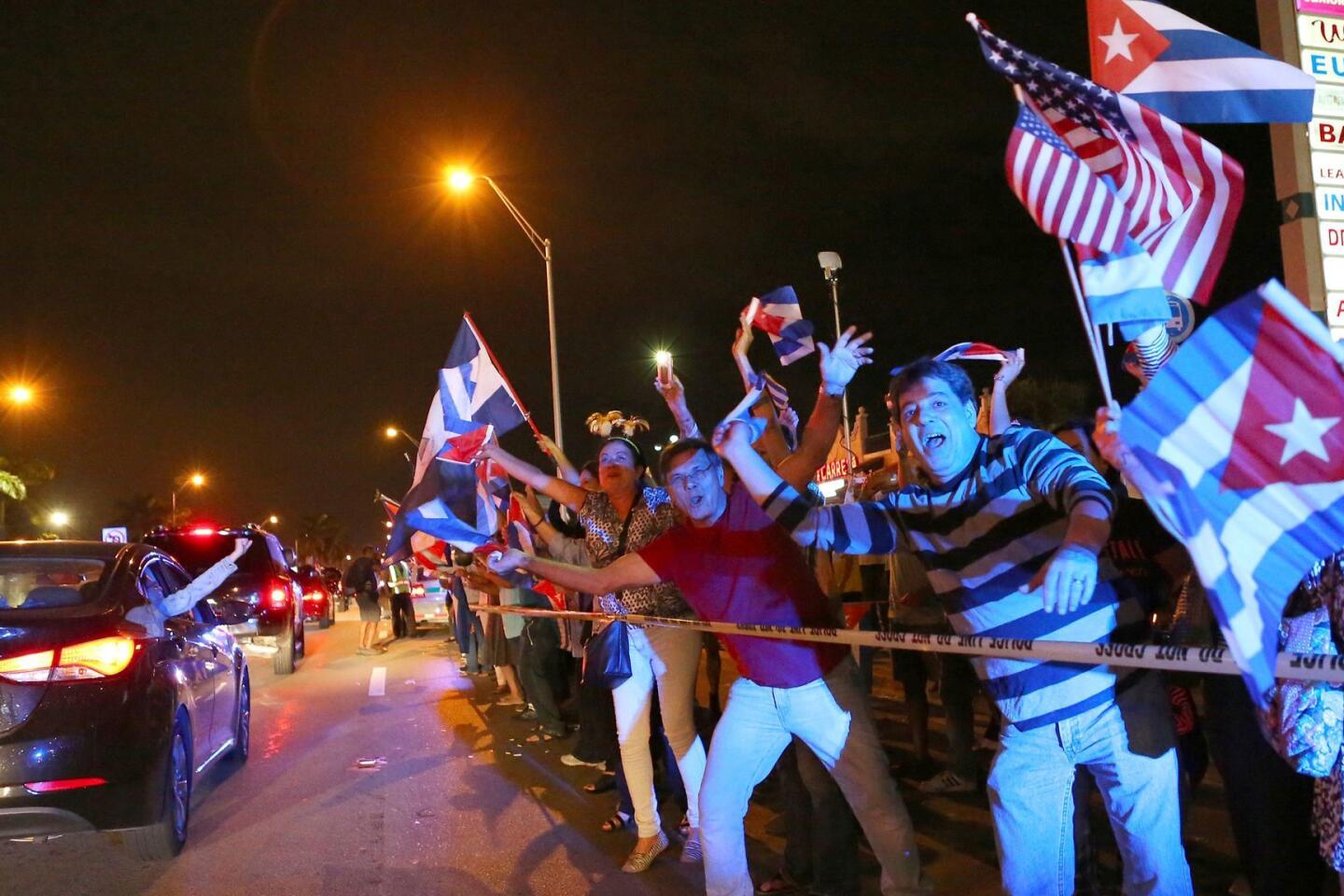For decades, Cuban Americans have longed to return to a post-Castro Cuba. But now that Fidel is dead, many aren’t so eager to go
- Share via
Reporting from Tampa, Fla. — As people poured into the streets of Miami’s Cuban neighborhoods in jubilation early Saturday following the news of Fidel Castro’s death, few of those born in the island nation were talking about moving back to their homeland.
The idea of returning used to be the primary reason Cubans in South Florida spoke out against the Castro regime. They had been kicked out of the country, or were forced to flee, thus becoming political refugees in the U.S.
But now some emigres say they would rather remain in the U.S., where they’ve enjoyed a standard of living that would be tough to match if they returned to communist Cuba.
“I really am not sure that the death of Fidel Castro is going to make much of a difference at this point,” said Elana Garcia, a Boynton Beach resident who left Cuba for Florida in 1961 at age 13 as part of the mass exodus of children known as Operation Pedro Pan. “Because his brother [Raul Castro] is still the president, and [he] has insisted that he will do everything to make sure that Cuba remains a socialist nation.”
“Even if both Castros are dead, what kind of life can I expect to have there?” Manuel Gonzales, 74, said via telephone from his home in Hialeah, near Miami. “I could never have the quality of living I have here there – or for my family. America took me, and I am one with America now.”
Gonzales, once a doctor in Cuba, worked different odd jobs in the U.S. when he brought his wife and two daughters in 1965. Now retired, he represents an aging population of Cuban exiles living in the U.S.
According to a Pew Research Center report from 2014, the percentage of Cuban Americans who were born in Cuba has dwindled. Just over half of Cuban Americans were actually born in Cuba, with the rest being born in the U.S. or elsewhere. The same Pew report also cited that more than half of Cubans living in the U.S. now had arrived after 1990, marking a generational shift.
Gonzales’ oldest daughter, Maria Gomez, also lives in Hialeah and has three children. She works as a hotel receptionist and said she did not see herself moving back to Cuba, where she was born, though she would like to visit family there. The last time she was there was in 1989 when her grandfather was dying.
“It’s tough to think about – what if I could go back to live and give up life here,” Gomez, 49, said by phone. “But I have family and friends, a job. How can I turn my back on everything we’ve established here now?”
Also in Hialeah is Lisa Delgado, whose parents brought her and her brother to the U.S. in 1978. Delgado runs a small food store with her husband, Hugo, in the neighborhood.
“We have a business here,” Delgado, 48, said by telephone. “What reason would I have now to go back? Sure, it would be great if I could make the same money there as I can here, but even if I live small here it is much better than in Cuba. It costs $1 for a pound of meat there and Cubans make maybe $10 a month. There’s no way.”
Maria Cano, a retired dental records assistant who came to the U.S. in 1982 with her husband and two of her children – two others joined them months later – said life in the U.S. was better because of the education.
She questioned how her four children and six grandchildren would have received the kind of education in Cuba that they’ve gotten here.
“When we came, our kids started attending a good public school,” Cano, 63, said. “To this day I know schools in Cuba will have a long way to go even after the other Castro is gone. I want more Cubans to be able to come here, if President Trump will let them.”
And beyond the quality of life in the U.S., there are the differences between Cuban American culture and culture in Cuba.
Gonzales said he would have a hard time relating to regular Cubans now, after having absorbed American values and enjoyed American freedoms.
“Just take the news of Castro’s death – I mean, they announced it at night on purpose so that the Cuban people would not be awake during the day to make a problem,” he said. “Here, we get the news immediately. There is no, what, blackout of the press.”
“I think it might be hard to just talk with them sometimes because they are limited on what they know. But it’s not their fault,” Gonzales added. “The regime keeps people without knowledge. That would be difficult for me – relating to Cubans who know fewer things than we do here.”
Neuhaus is a special correspondent. The Sun Sentinel contributed to this report.
ALSO
The Cuba where Fidel Castro died is a very different place from the one he ruled for decades
Fidel Castro’s death could ensure Obama’s opening to Cuba survives
In Miami’s Little Havana, Cubans whoop, dance and reflect as they celebrate Castro’s death
More to Read
Sign up for Essential California
The most important California stories and recommendations in your inbox every morning.
You may occasionally receive promotional content from the Los Angeles Times.
